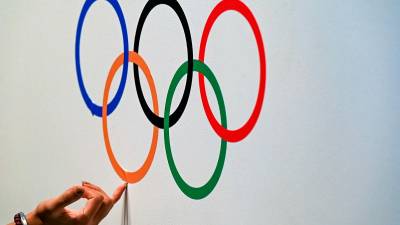NEW DELHI: India’s ambitious bid to host the 2036 Olympics faces serious challenges due to the country’s persistent doping problems among athletes.
The International Olympic Committee has expressed concerns about India’s high rate of performance-enhancing drug use as the nation campaigns for the prestigious sporting event.
Olympic javelin champion Neeraj Chopra recently acknowledged that doping represents a significant issue within Indian sports, urging athletes to focus on proper nutrition and training instead.
The Indian Olympic Association established a new anti-doping panel last month following IOC warnings about the country’s poor doping record.
India’s government has passed new legislation aiming to strengthen anti-doping enforcement and expand testing facilities nationwide.
Former IOC marketing director Michael Payne stated that the committee carefully evaluates a potential host’s doping policies and governance standards before awarding the Games.
The World Anti-Doping Agency lists India among the worst offenders for nations submitting more than 1,000 test samples annually.
India’s national anti-doping agency argues that their high testing numbers reflect aggressive monitoring in the country of 1.4 billion people.
Of the 5,606 samples collected in 2023, 213 returned positive results for banned substances according to official data.
Experts identify the synthetic steroid stanozolol as the most commonly used prohibited substance among Indian athletes.
India has won only 10 Olympic gold medals throughout its history despite its enormous population size.
Sports analysts note that desperation for success and escape from poverty drives some athletes to risk doping violations.
Achieving sporting success often leads to coveted government positions with police or military forces, providing lifelong financial security.
Lawyer Saurabh Mishra explained that athletes knowingly jeopardise their careers because medals can secure them government employment.
Athletics produces the highest number of doping violations in India, followed closely by wrestling with 19 recently banned athletes.
Under-23 wrestling champion and Paris Olympics quarter-finalist Reetika Hooda received a provisional suspension after testing positive in July.
Mishra noted that some athletes unintentionally consume banned substances through supplements while others deliberately take risks.
Coaches sometimes encourage athletes to use performance-enhancing drugs according to sports medicine experts.
Sports medicine specialist Saranjeet Singh stated that recent increases in violations reflect both stricter testing and athletes seeking shortcuts to international success.
India competes against Indonesia, Turkey, Chile and Qatar for hosting rights to the 2036 Olympic Games.
Payne observed that many previous Olympic hosts had complicated doping histories before securing the event.
The former IOC director suggested that India’s greater challenge involves demonstrating reliable operational capabilities rather than just addressing doping concerns.
He referenced the corruption-plagued 2010 Commonwealth Games in New Delhi as creating lingering doubts about India’s organisational abilities.
Payne identified operational delivery confidence as the most significant obstacle facing India’s Olympic bid. – AFP
